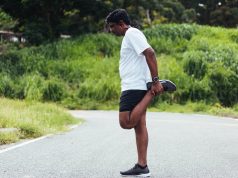Muscle power, but not strength, is independent determinant of pain and quality of life
FRIDAY, Dec. 11, 2015 (HealthDay News) — For patients with knee osteoarthritis (OA), leg muscle power independently predicts pain and health-related quality of life, according to a study published in the December issue of Arthritis & Rheumatology.
Kieran F. Reid, Ph.D., M.P.H., from Tufts University in Boston, and colleagues examined the correlation between leg muscle strength, power, and perceived disease severity in knee OA. Baseline data were obtained for 190 individuals with knee OA. The Western Ontario and McMaster Universities Osteoarthritis Index was used to measure knee pain, while health-related quality of life was evaluated using the Short Form-36 (SF-36).
The researchers found that greater muscle power correlated significantly with pain (P < 0.02) and correlated positively and significantly with SF-36 physical component summary (PCS) scores (P < 0.05), in univariate analysis. Muscle power independently predicted pain (P ≤ 0.05) and PCS scores (P ≤ 0.04) after adjustment for multiple covariates. Muscle strength did not independently predict pain or quality of life (P ≥ 0.06).
“Compared to strength, muscle power may be a more clinically important measure of muscle function within this population,” the authors write. “New trials to systematically examine the impact of muscle power training interventions on disease severity in knee OA are particularly warranted.”
One author disclosed financial ties to the pharmaceutical and biotechnology industries.
Copyright © 2015 HealthDay. All rights reserved.








